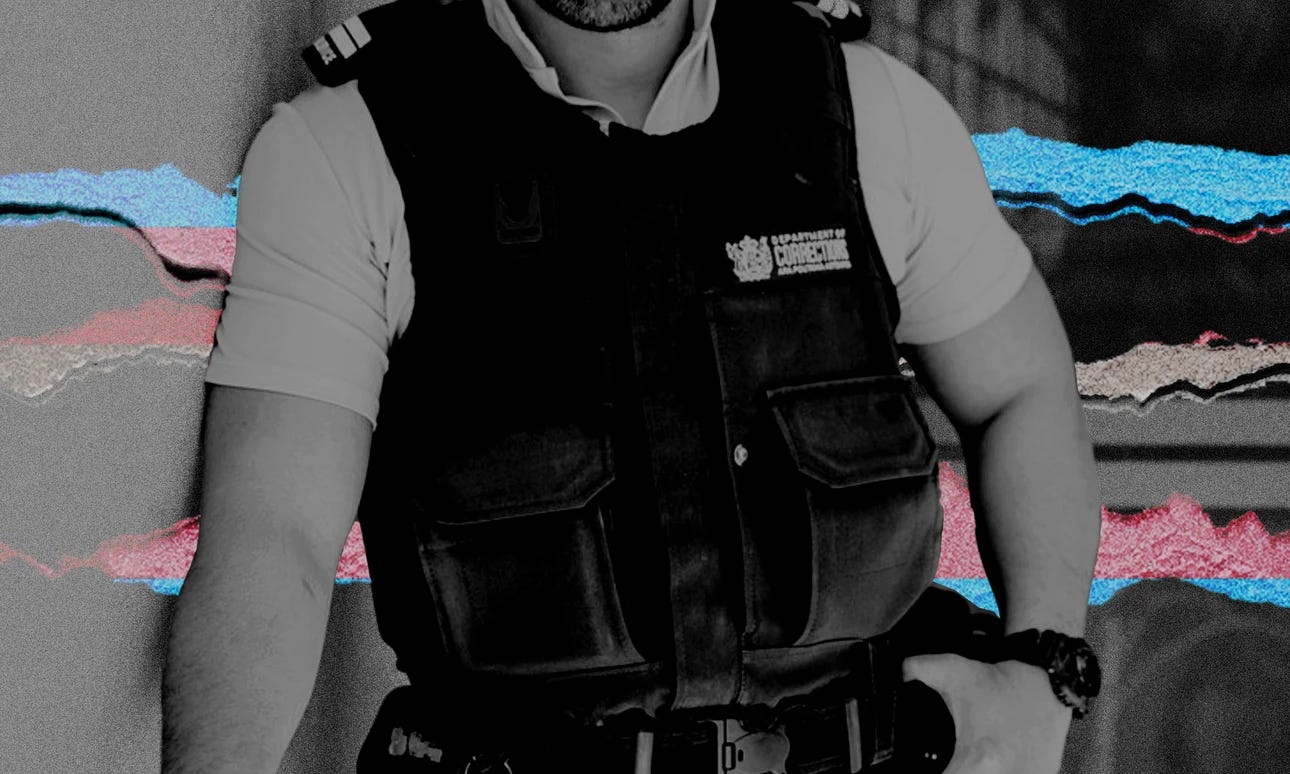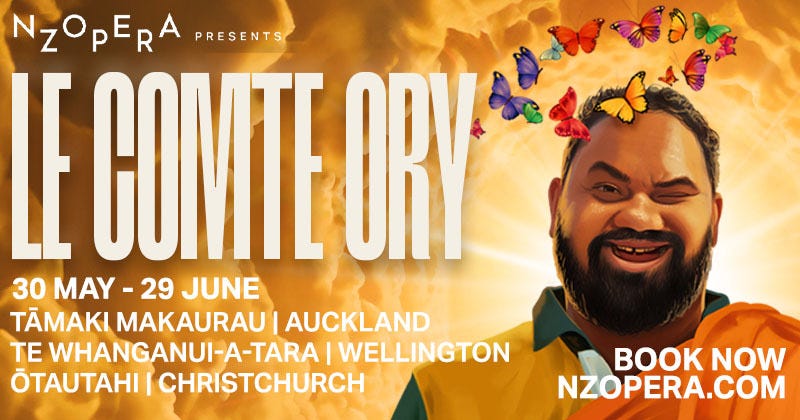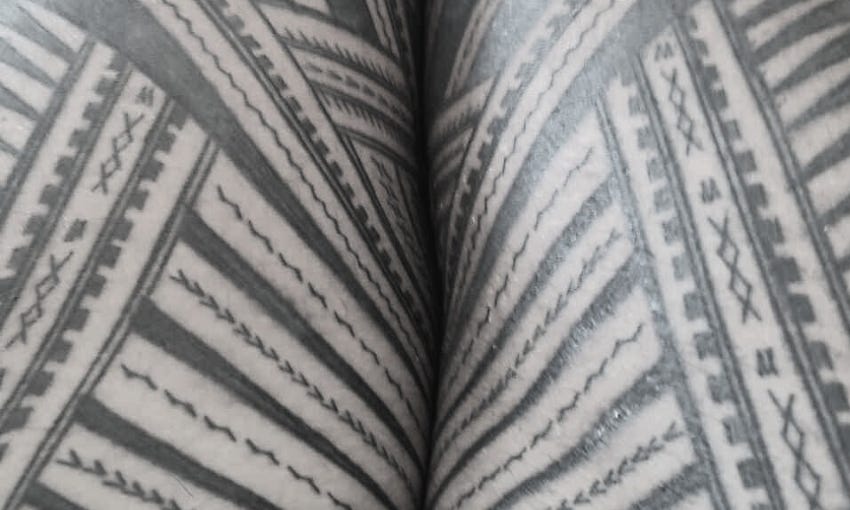Mōrena and welcome to The Weekend where there will sadly be no aurora to see. After a busy week last week of short, sharp pieces, this week we swung the other way, with longer features about much broader topics. Which means my three top recommendations in today’s newsletter are all 3,000+ word stories, so please get comfortable.
The cover story, as it were, for this week was senior writer Alex Casey’s carefully navigated story about a trans Corrections officer who has brought a case against his employer to the Human Rights Review Tribunal, the first time the Tribunal will consider a case on the basis of sex involving a transgender person.
This story would be a big deal at any time, but it feels particularly important now, as New Zealand First (particularly the deputy prime minister) plays directly to the small anti-trans base with its new bill that would see individuals fined if caught using a toilet that does not align with their assigned sex. Will the bill ever pass? Almost certainly not. But its purpose was never to pass, simply to stir discontent.
Adam*, the man who spoke to Alex about his experience working at Corrections, is not an “activist” nor an “advocate”, he is simply someone who wanted to do their job and felt it increasingly difficult after coming out as trans to his employer.
These types of stories (which Alex writes better than anyone in the country) are a crucial pillar of journalism. They take an issue that has morphed into a “culture war” and political football, and show the very real people within it. Because regardless of your politics, Adam’s story touches on some very basic and universal themes: communication (or lack thereof), the right to privacy, and the desire to live as one’s true self, free from harassment.
‘I knew every day I stepped in there, I was going to get picked on’
A trans Corrections officer is taking a case against his employer to the Human Rights Review Tribunal after his experience of discrimination, harassment and bullying at work. This includes being regularly mocked, deadnamed and misgendered by his Corrections colleagues, and having a lack of clarity around his duties due to his gender identity.
The landmark case represents the very first time that a transgender person will be at the centre of a discrimination case based on sex, and will test whether or not gender diverse people are adequately protected under the Human Rights Act, which has remain unchanged since 1993.
Behind the Story
I spoke to Alex about the unique process and care involved in telling these types of stories – it’s not just a short phone call and some transcribing. This particular story took about a month (which is actually very quick for a long feature of this nature) and involved numerous interviews, on and off the record, and a lot of talking about things well beyond the scope of the article. Plus, some insights into the anxiety and nerves that accompany every “big story” up until, and in the moments after, it’s published.
A cult classic comedy in an all-new local staging
Touring Auckland, Wellington and Christchurch from May 30, the NZ Opera season of Rossini’s Le comte Ory brings new life to a satirical masterwork. Led by acclaimed director Simon Phillips, and with a cast featuring Manase Latu, Emma Pearson and the return of Sol3 Mio’s Moses Mackay, opera-lovers and the opera-curious alike will find plenty to love in this effervescent contemporary interpretation.
Group, senior, student and under-35 deals available - book today!
A must-read essay about family and tatau
The Spinoff has always prided itself on its personal essays, and this is, in my opinion, one of the best we’ve published. Traversing oceans and generations while taking us through the painful process of receiving his pe’a (tradition Samoan tattoo), Loveni Enari encapsulates what makes the essay form so consistently compelling.
“As my dramatic cousin later said, ‘When you have a tattoo, you have to be prepared to die.’ Well I was very literally prepared and resigned to that possibility – anything better than the shame of being labelled a coward.
As the saying goes, ‘E motu le ula, motu le fau, ae o le tatau, e te alu ma oe i le tu’ugamau.’ – ‘The garland is broken and so is the fau (bark for binding, lashing) but the tatau, it will go with you to the grave.’”
Bearing witness to a confession of murder
“Nearly 30 years ago, two people told me they'd killed a woman they knew. I thought the truth would come out, that others would tell it. In the end, I had to.”
A staggering first sentence from Tina Cartwright, who explains the lengthy journey to her testifying in a murder trial three decades after the homicide. It’s not an experience that many can relate to, but it does invite the evergreen question: what would you do in that situation?
We're keen to get to know listeners of The Fold podcast better! Please complete our short survey and help us tailor our content to your preferences.
The stories Spinoff readers spent the most time with this week
A trifecta for staff writer Shanti Mathias this week as she delves into topical issues and assists all those who missed last weekend’s aurora with their aurora grief:
Alex Casey’s excellent story featured above
NZ First’s toilet bill is unlikely to go anywhere and is designed to outrage. Anna Rawhiti-Connell argues that we should still care about who gets caught up in culture war crossfire and hope (and work) for better.
More recommended reads for your weekend
Turns out you can technically legally drink a beer while driving. Joel MacManus meets the man behind New Zealand’s weirdest legal cases
Emily Perkins’ book Lioness was awarded the top fiction prize at the Ockhams this week. I spoke to her the morning after.
Help Me Hera: I want to switch hairdressers but I feel sooo guilty about it
Nobody pays more attention to language and its meaning than Alice Neville. Here she is explaining how numbers work to the police minister (and everyone who reports on and reads gang numbers).
A vital feature from Rachel Judkins on what the decline of rural post means for those communities.
Reader feedback of the week
A lot of solidarity among those that missed the aurora
Healthy debate on the value of green space on last week's piece about Wellington's Berhampore Golf Course
Thanks for reading and see you next week,
— Madeleine Chapman


















I can't understand the toilet thing. Both here and overseas more and more toilets have a locked door and any sex can use them. Great for women who have long waits in the traditional toilet blocks.
The Tina Cartwright piece is stunning! So real & relatable with the question of "what would I have done?" We can never totally predict because our own circumstances might prevent what we would WANT to do using our "moral compass" as Tina discusses. So thought provoking 🤔